
A brief history of fortune tellers:
The practice of fortune telling has a rich and varied history that dates back to ancient times. Many cultures have their own unique methods of divination, which have been passed down through generations.
In ancient Egypt, fortune tellers were known as “heka” and were considered to be powerful priests who could communicate with the gods. They would use various methods of divination such as reading the stars, interpreting dreams, and studying the entrails of animals to predict the future.
In ancient China, fortune telling was a common practice among the nobility, who would consult with fortune tellers to make important decisions. They would use methods such as yarrow stalks and the I Ching to predict the future.
In ancient Greece, the Oracle of Delphi was a famous fortune teller who was consulted by leaders and common people alike. The Oracle would give predictions and advice through a priestess who was said to be in a trance state.
During the Middle Ages, fortune telling was often associated with witchcraft and was considered to be a crime. Despite this, many people still sought out a fortune teller in secret.
In the modern era, fortune telling has become more mainstream and is often seen as a form of entertainment. However, there are still many people who take it seriously and believe that it can provide valuable insights into their lives.
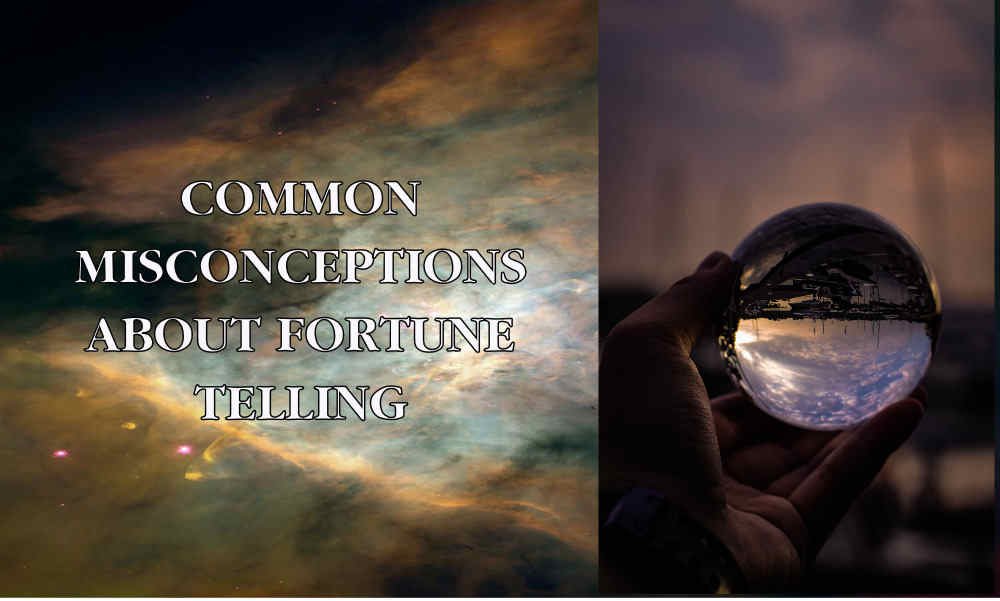
Common misconceptions About Fortune Telling:
Fortune telling is a practice that has been around for centuries and is steeped in tradition and culture. However, it is also a practice that is often shrouded in myths and misconceptions. Here are some of the most common misconceptions about fortune telling:
- Fortune telling is only for those who believe in the supernatural – Many people believe that fortune telling is only for those who believe in the supernatural or the paranormal. However, fortune telling can be seen as a way of understanding the patterns and cycles of life, and can be used as a tool for self-discovery, regardless of one’s belief system.
- A fortune teller can predict the future with 100% accuracy – A Fortune teller is not able to predict the future with 100% accuracy. The future is always uncertain, and the best course of action is to use your own judgment and take responsibility for your own life.
- Fortune tellers are all frauds – While there may be some fraudulent fortune tellers, there are also many legitimate ones who have honed their craft and have a deep understanding of the methods they use. It’s important to do your research and find a reputable fortune teller.
- Fortune telling is only for entertainment – While fortune telling can be used as a form of entertainment, it is also a serious practice that can provide valuable insights into a person’s life. It’s important to remember that the future is always uncertain, and the best course of action is to use your own judgment and take responsibility for your own life.
In conclusion, Fortune telling is a practice that has been around for centuries and is steeped in tradition and culture. However, it is also a practice that is often shrouded in myths and misconceptions. It’s important to remember that fortune telling is not a substitute for making important decisions and one should use their own judgment.
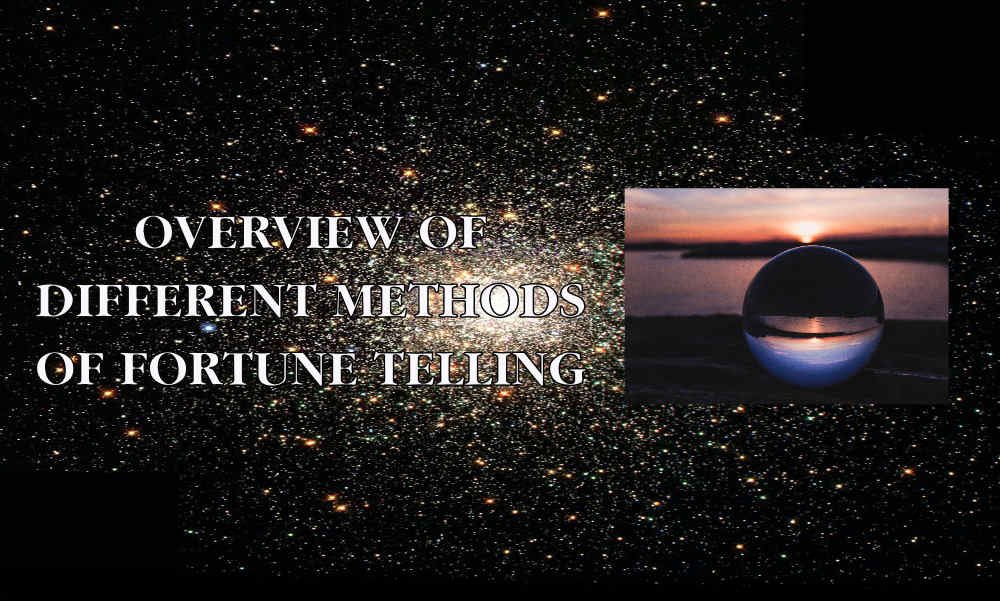
Overview of different methods of fortune telling: (tarot reading, astrology, palmistry, etc.)
Fortune telling is a practice that involves the use of various methods to predict a person’s future.
Each method works differently and has its own unique origins.
1 Tarot Reading:
Tarot reading is a method that involves the use of a deck of cards with specific symbols and meanings. Each card represents a different aspect of life, such as love, health, or career. The fortune teller will interpret the cards in order to provide insights into the person’s past, present, and future. The origins of tarot cards are uncertain, but it’s believed that they originated in medieval Europe, and were used as a tool for playing games.
2 Astrology:
Astrology is a method that involves the study of the positions of the stars and planets in order to predict the future. Astrology is based on the belief that the positions of celestial bodies at the time of a person’s birth can influence their personality and life path. Astrology has its origins in ancient Mesopotamia and Egypt, and it was later developed by the ancient Greeks and Romans.
3 Palmistry:
Palmistry is the practice of reading the lines on a person’s hand to determine their fate. The fortune teller will look at the shape, size, and lines on the hand to make predictions about the person’s future. Palmistry has its origins in ancient India and China, where it was considered to be a science.
4 Numerology:
Numerology is a method that involves the study of numbers in order to predict the future. The fortune teller will use a person’s birth date and name to calculate numerological numbers that can provide insight into the person’s personality and future. Numerology has its origins in ancient Greece, where it was considered to be a branch of mathematics.
5 I-Ching:
I-Ching is an ancient Chinese method of divination that uses a set of coins or yarrow stalks to form a hexagram. The fortune teller will interpret the hexagram to provide insight into the person’s present and future. I-Ching has its origins in ancient China, where it was used as a tool for divination and decision-making.
6 Scrying:
Scrying is a method that involves gazing into a reflective surface such as a crystal ball or mirror to see visions of the future. The origins of scrying are uncertain, but it is believed to be used by ancient cultures as a way of communicating with spirits.
These methods have been used for centuries, and they have evolved over time to adapt to cultural and traditional practices.

How fortune telling has evolved in the modern era:
Fortune telling is a practice that has evolved over time to adapt to cultural and traditional practices. In the modern era, fortune telling readings has undergone several changes in terms of its methods, beliefs, and popularity.
1 Advancement in technology:
The use of technology has transformed the way fortune telling is done. There are many more online fortune tellers who now use online platforms and apps to offer their services. This makes it easier for people to access fortune telling services from anywhere and at any time.
2 Greater accessibility:
With the rise of the internet, it has become easier for people to access fortune telling services. There are many websites and online platforms that offer fortune telling services, making it more accessible to a wider audience.
3 Greater diversity:
With the rise of multiculturalism and globalization, fortune telling has become more diverse. Many fortune tellers now offer services that are based on different cultural and traditional practices.
4 Greater skepticism:
With the rise of science and critical thinking, there has been a growing skepticism towards fortune telling. Many people view it as nothing more than a form of entertainment and do not take it seriously.
5 Greater professionalism:
On the other hand, with the rise of online fortune telling, many fortune tellers have become more professional in their approach. They have started to offer services that are based on psychology and personal development, rather than just predictions.
Fortune telling has evolved in the modern era with the help of technology, which made it more accessible, diverse, and professional. The skepticism has risen but many people still believe in its power and take it seriously.

Summary of key points:
Fortune telling is a practice that seeks to predict the future through the use of various methods such as tarot reading, astrology, palmistry, and other forms of divination. It has a rich and varied history that dates back to ancient times, with many cultures having their own unique methods of fortune telling.
The practice of fortune telling is often shrouded in myths and misconceptions, such as that fortune telling is only for those who believe in the supernatural, fortune tellers can predict the future with 100% accuracy, and fortune tellers are all frauds. However, it is important to remember that fortune telling is not a substitute for making important decisions and one should use their own judgment. Like many devinitary practices it can only guide and help you make your own decisions. Remember we all have free will.
There are many different methods of fortune telling, each with its own unique origins and ways of working. Some of the most popular methods include tarot reading, astrology, palmistry, numerology, I-Ching, and Scrying.
Fortune telling has evolved in the modern era with the help of technology, which made it more accessible, diverse, and professional. However, skepticism has also risen with the rise of science and critical thinking.
In conclusion, fortune telling is a practice that seeks to predict the future through the use of various divinatory methods and skills. And it has a rich history.
Additional resources for further reading:
There are many resources available for those who are interested in learning more about fortune telling and its various methods. Here are a few options for further reading:
“The Complete Book of Tarot: A Step-by-Step Guide to Reading the Cards” by Juliet Sharman-Burke and Giovanni Caselli – This book is a comprehensive guide to tarot reading, covering the history and symbolism of tarot cards as well as providing instructions for reading them.
“The Only Astrology Book You’ll Ever Need” by Joanna Martine Woolfolk – This book is a comprehensive guide to astrology, covering the history and symbolism of astrology as well as providing instructions for reading horoscopes.
“The Palmistry Bible: The Definitive Guide to Hand Reading” by Jane Struthers – This book is a comprehensive guide to palmistry, covering the history and symbolism of palmistry as well as providing instructions for reading palms.
“The I Ching: The Book of Changes” translated by Richard Wilhelm and Cary F. Baynes – This book is a classic translation of the ancient Chinese text “The I Ching” which is a divination tool and classic of Chinese literature.
“Crystal Gazing: A Study in the History, Distribution, Theory, and Practice of Scrying” by Theodore Besterman – This book is a comprehensive guide to the history and practice of scrying, covering its use in various cultures and time periods.
These are just a few examples of the many resources available for those who are interested in learning more about fortune telling and its various methods. Enjoy your journey and I hope you found this article of help to you.




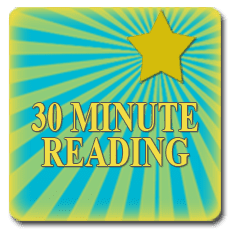
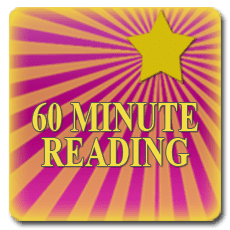

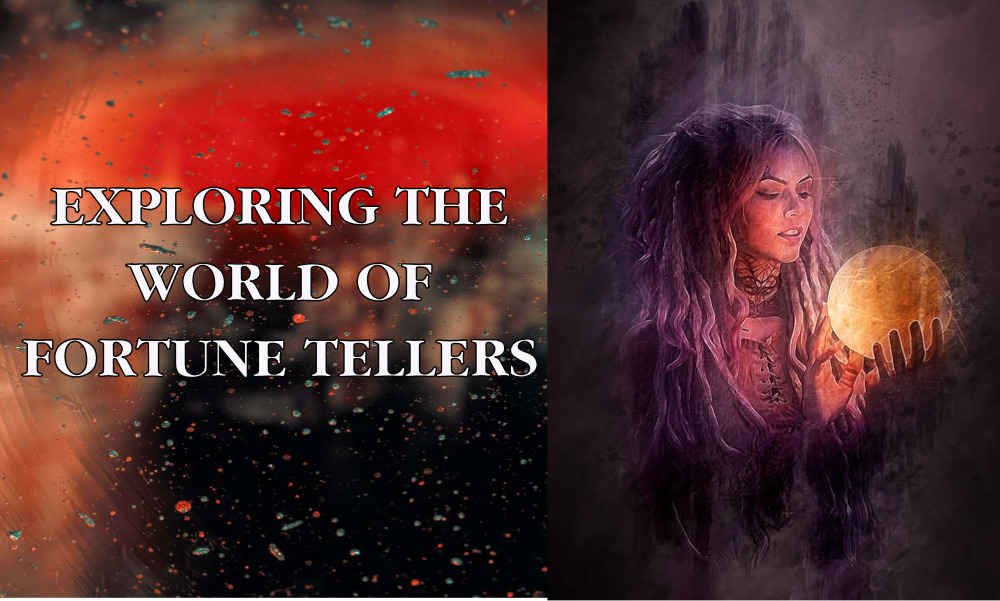
0 Comments